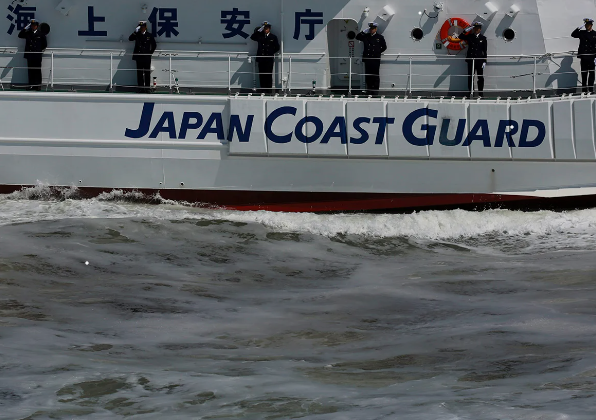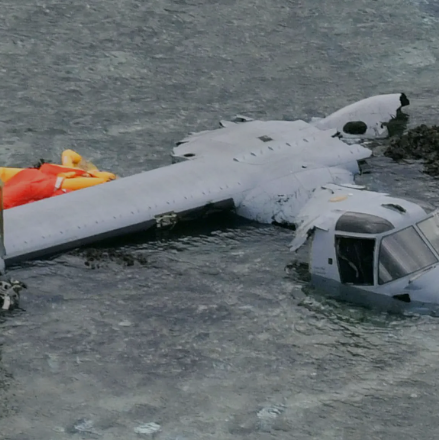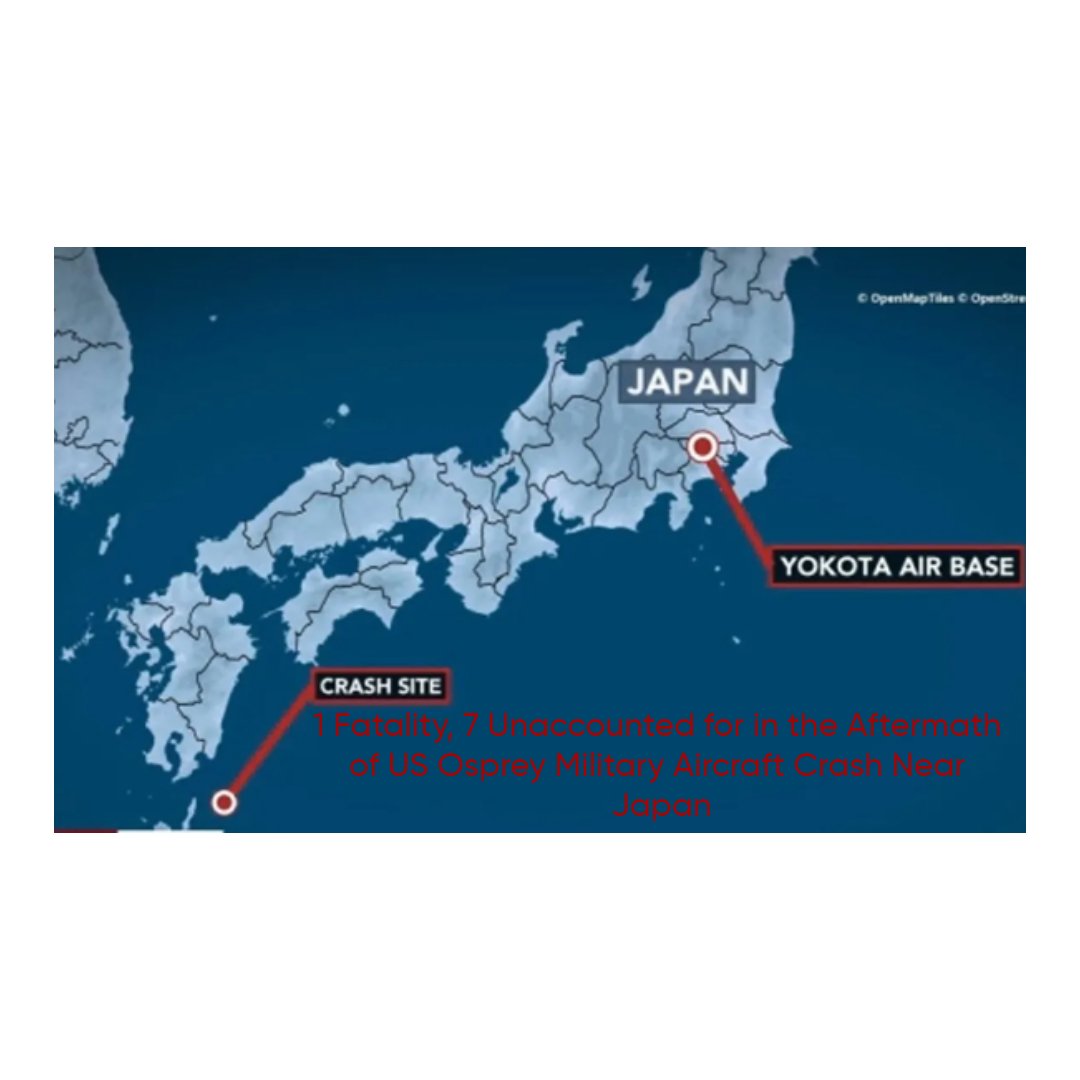Rescuers combed the waters off Japan on Thursday in search of seven missing US Air Force personnel after their Osprey crashed during a training exercise, marking the latest mishap involving the tilt-rotor military aircraft. Japan’s defense minister announced the suspension of Osprey flights by US forces in the country following the tragic incident.
The Japanese coastguard reported that one unconscious individual was discovered in the sea and later pronounced dead after the CV-22B Osprey crashed near the island of Yakushima on Wednesday.

The US Air Force Special Operations Command disclosed that eight crew members were on board the aircraft during the “routine training mission” originating from Yokota Air Base in Japan.
The cause of the incident remains under investigation,” stated a release on Wednesday, as emergency personnel are actively engaged in search and rescue operations at the scene.
A Kagoshima region emergency management official reported that there were indications of the aircraft “emitting flames from the left engine.”
Coastguard-released photos depicted an overturned yellow life raft and scattered debris in the waters off Yakushima, situated south of Kyushu, Japan’s southernmost main island.
According to a Japanese coastguard spokesperson on Thursday, the search operation persisted throughout the night, involving six patrol ships and two aircraft.

Local police and rescue teams are collaborating in the efforts, supplemented by the coastguard’s use of specialized sonar devices for seafloor scanning.
Initially, the coastguard stated eight crew members were aboard, subsequently revising the count to six, only to revert to the original number of eight.
The Osprey, a collaborative creation of Bell Helicopters and Boeing, capable of both helicopter and fixed-wing plane operations, has unfortunately experienced a series of fatal crashes.
One such incident occurred in August in northern Australia, resulting in the tragic deaths of three US marines out of the 23 individuals on board.

In a separate incident last year in Norway, four US Marines lost their lives when their MV-22B Osprey aircraft crashed during NATO training exercises.
In 2017, three Marines lost their lives in another Osprey crash, which occurred when the aircraft clipped the back of a transport ship while attempting to land at sea off Australia’s north coast.
A significant incident took place in 2000, claiming the lives of 19 Marines when their Osprey crashed during drills in Arizona.
In 2016, an MV-22 Osprey crash-landed off Okinawa, leading the US to temporarily ground the aircraft in Japan, as the incident fueled local resentment.
On Thursday, Defence Minister Minoru Kihara announced that he had urged the US military to halt flights once again in the wake of the recent crash.

“We initiated life-saving efforts upon receiving the initial reports, and this morning, we formally requested the suspension of Osprey flights to the USFJ’s commander,” Kihara stated before an upper house diplomacy and defence committee, referring to United States Forces Japan.
Japan has called for the cessation of Osprey flights until their safety is assured, with the exception of search and rescue operations, Kihara specified.
“We are urging the prompt disclosure of information regarding the circumstances surrounding the accident,” he added.
As of now, the US military, which maintains approximately 54,000 personnel in Japan, has not commented on the suspension request.

Government spokesman Hirokazu Matsuno conveyed that Japan’s military has already halted flights of its own Ospreys “until safety is confirmed,” expressing condolences for the tragic crash.
Such incidents generate significant apprehension among the residents in the region and are profoundly regrettable,” he expressed.
